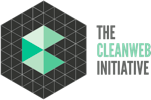Building a better future starts with an informed public. But citizen-driven knowledge is only possible if we can access the information they need. Today, digitizing our public records allows us to do that at scale and without the prohibitive costs of paper storage, no pun intended. It’s time to take information literacy more seriously because it’s not about the content of our knowledge but about making it actionable.
1. Use a Knowledge Management Platform
A knowledge management platform is an ideal solution for publishing content at scale. It allows you to easily create, manage and share content across your organization or community. While open-source tools like Drupal and WordPress may seem like simple blogs or wikis, they can work as powerful knowledge management platforms when integrated with your data.
2. Create Online Resources for Elected Officials
City officials know their communities better than anyone else. In some cities, a small group of knowledgeable community leaders comes together to document public records and build online resources for elected officials. Chicago’s Civic Data Commons created the Chicago Open Government Initiative, a private wiki outlining the city’s open government policies. The results are abundant data sets that can inform policymakers and spark new civic initiatives.
3. Leverage Your Data in Online Tools
If you’re creating information for your elected officials, you should consider using their data in your website or application. Some open-source tools can provide valuable data that you can then republish in your digital spaces. Tools like Google BigQuery can provide data as a service and scale to fit your needs.
4. Build a Community of Interest Across Community Members
Citizen-driven knowledge is valuable, but it’s even more powerful when information is built on a foundation of consensus. To build consensus on what types of data are essential to the community, you need a space for your community members to come together and share their knowledge. If you already have a lively community forum like Reddit, turning your subreddit into a series of data sets can be an excellent way to collect public knowledge.
5. Reuse Existing Data Sets
If you don’t have the time or resources to collect your data, you can always rely on the work of others. From government data to human-driven content, a wealth of public information is available. But you’ll need to know where to access and use quality datasets from existing sources. As mentioned earlier, Google BigQuery is an excellent place to start for data as a service.
6. Help Citizens Learn to Read Data
If you’ve collected a wealth of data, chances are there’s a community of citizens that want to learn how to read it. In the same way, we teach children and students how to read, write, and speak, and it may be worthwhile to create a more formal system where citizens can learn how to understand the data that drives their communities. It can be as simple as opening public meetings with an introductory tutorial on interpreting public records.
Knowledge is power, and access to information is a fundamental right for citizens. Citizens across the country are demanding more from their elected officials and calling for greater transparency in government. We need citizens to be informed and engaged — not just on social media but also about the daily policies that affect them. We can’t build a better future when we don’t know how our government operates.




